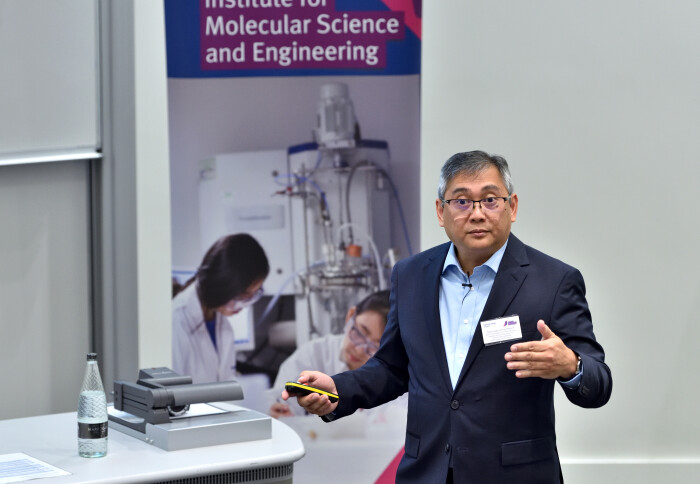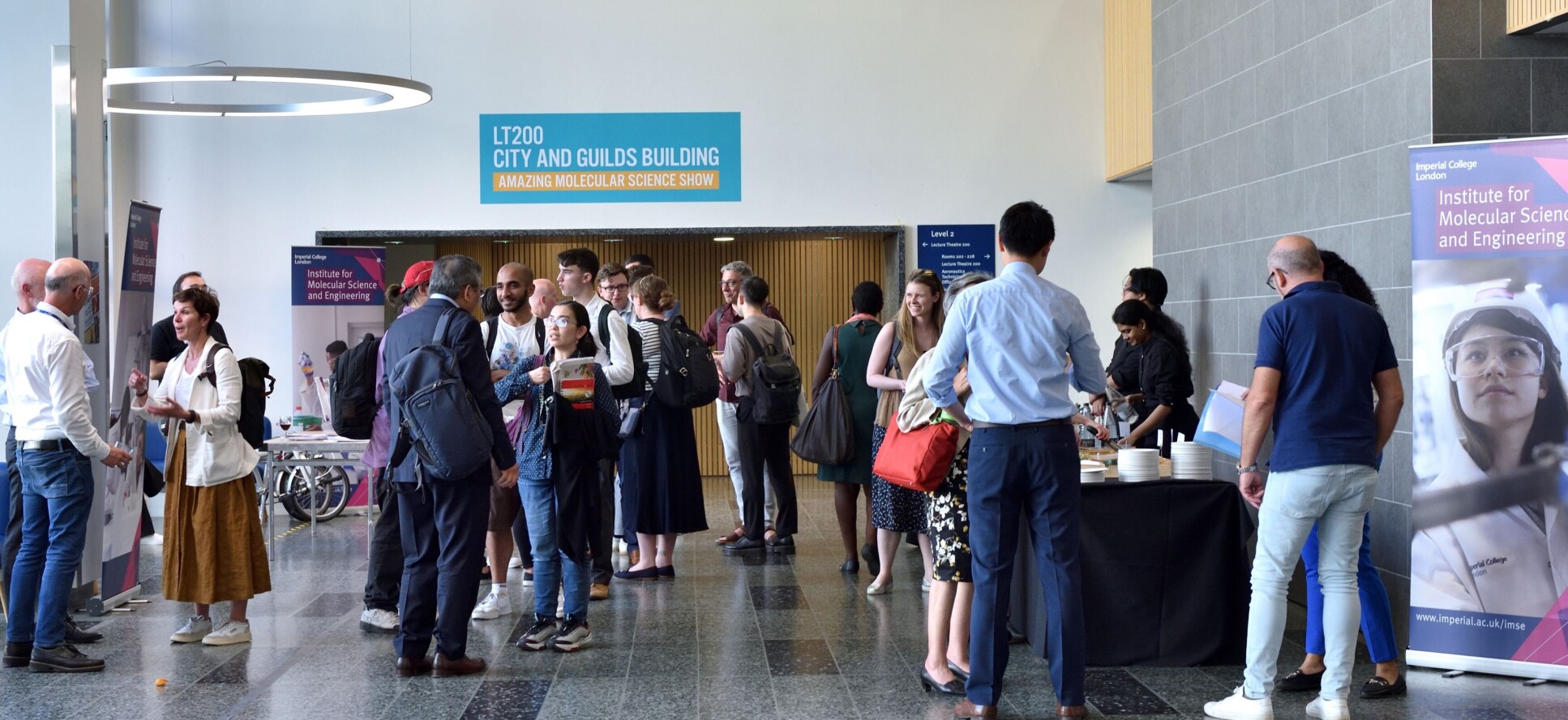Re-thinking innovation and engagement to deliver water and sanitation worldwide

Professor Francis de los Reyes III delivers the 5th IMSE annual lecture.
The toilet is the world’s most underrated technology, argued Professor Francis de los Reyes III at the fifth IMSE Annual Lecture.
Professor de los Reyes visited Imperial on 15 June 2023 to take part in a day of presentations and discussions focused on Water, Sanitation and Hygiene (WASH) technologies and solutions. As part of this, he delivered the Dr Theo George Wilson annual lecture for the Institute for Molecular Science and Engineering.
About 100 people attended in person and online throughout the day, including academics, students, schoolchildren, policy experts and professionals from water charities and international development organisations.
Watch the 5th IMSE annual lecture here:

The scale of the problem
In 2020, 3.6 billion people had no toilets at home, and 1.9 billion had no access to basic sanitation services, according to the World Health Organisation and UNICEF. Inadequate sanitation limits economies by 0.5-3% per year, according to the WHO, and investing in sanitation brings substantial economic benefit. Professor de los Reyes said that $1 invested in sanitation in sub–Saharan Africa brings in $5 in benefits to GDP.
The UN Sustainable Development Goal 6 aims to ensure access to water and sanitation for all by 2030. But progress towards achieving this goal is very behind schedule. The UN calculates that to reach its goal of access to drinking water, sanitation and hygiene for all by 2030, current rates of progress would need to increase by a factor of four.
SDG 6 is connected to all other SDGs. For example, access to drinking water, sanitation and hygiene is part of eradicating poverty (SDG 1), eliminating hunger (SDG 2), and achieving gender equality (via enabling menstrual hygiene, SDG 5).
Engineering safe sanitation systems at scale
Francis de los Reyes III is the Glenn E. and Phyllis J. Futrell Distinguished Professor of Civil, Construction, and Environmental Engineering at North Carolina State University. He told an interdisciplinary audience that toilets are only one part of a value chain of technologies, infrastructure and policy.

In developed countries, this sanitation value chain is largely hidden from citizens. It is paid for indirectly via taxation. It includes centralised systems of water delivery and waste removal, buildings and water regulations, and behavioural norms about privacy and value. But even in the US, it is not universal. Here, 1.4 million people do not have indoor plumbing, and access to sanitation is strongly stratified by income, which is related to ethnicity.
In many Low and Middle Income Countries, centralised sanitation systems often serve only small proportions of the population, or are only present only in small areas. To increase access to all, Professor de los Reyes argued for a strongly multidisciplinary, partnership-based approach, based on his experience developing sanitation technology in communities all over the world. This requires training engineering students to include how to work with communities and social scientists, not just in the core science.
Promoting multidisciplinary solutions
The Institute for Molecular Science and Engineering was founded at Imperial College London in 2017. Directed by Professor Amparo Galindo and Professor Nicholas Harrison, IMSE works to gather experts from different disciplines, sectors and countries to tackle grand societal challenges using a molecular science and engineering approach.

The flagship IMSE event is the annual Dr Theo George Wilson Lecture. This year, in addition to the lecture, IMSE organised and streamed a symposium for early career researchers and an expert panel discussion on the future of water, sanitation, and hygiene. This brought together experts from Imperial, other universities in the UK, commercial companies, start-ups and the policy world. They discussed why progress towards SDG 6 is so slow, and some emerging potential solutions.
Article text (excluding photos or graphics) © Imperial College London.
Photos and graphics subject to third party copyright used with permission or © Imperial College London.
Reporter
Dr Isabella von Holstein
Department of Computing